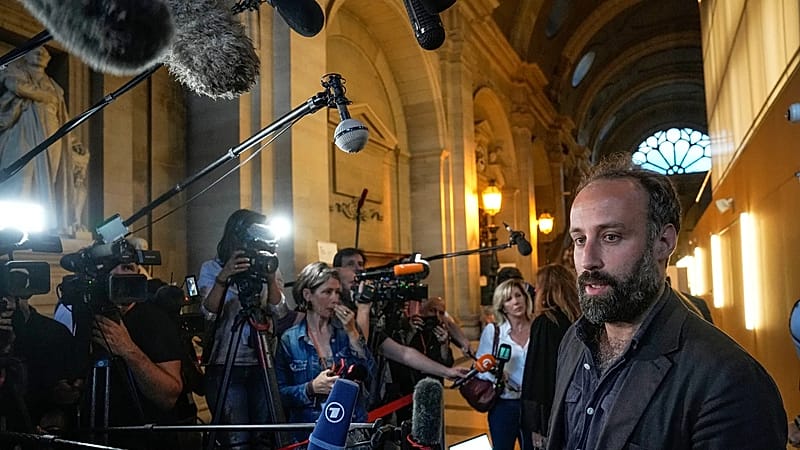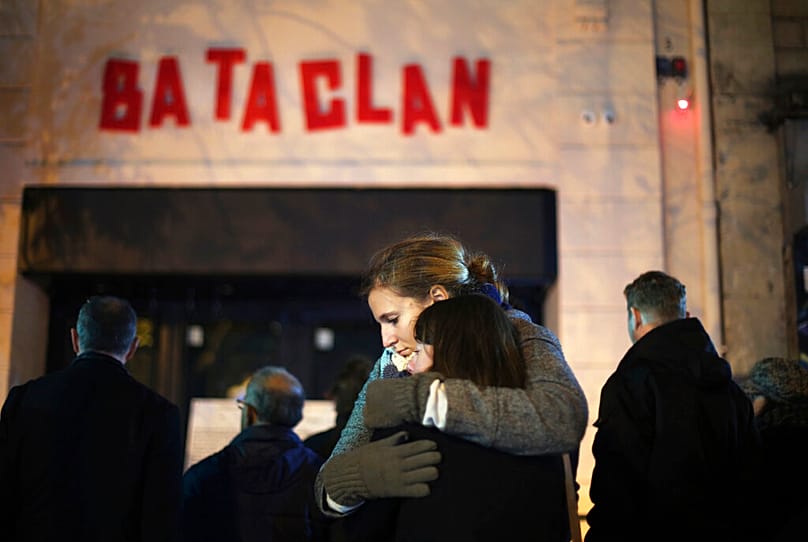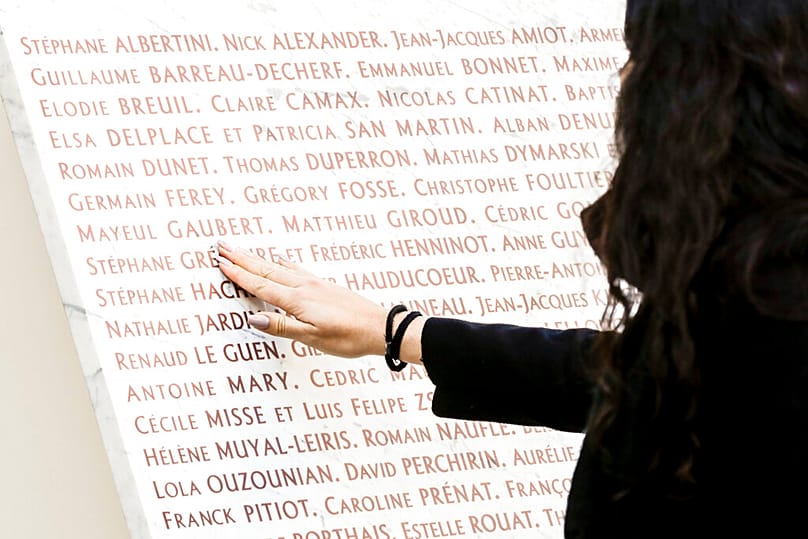Ten years on, survivors still struggle with trauma of deadly Paris terror attacks

The deadly attack on the Bataclan concert hall in Paris a decade ago, along with the shooting at the satirical magazine Charlie Hebdo, marked a turning point in Western Europe: the so-called Islamic State group shattered Europeans' sense of security.
This Thursday marks the 10th anniversary of the assault on the Bataclan, as well as attacks on Paris cafés and the national stadium, which killed more than 130 people and injured over 400.
"I remember clearly seeing the flame shooting out of the barrel of the gun," said Arthur Denouveaux, the president of the victims' association, Life for Paris.
"I remember lying on the ground and seeing the face of the girl who was looking at the terrorist, who was still standing there, looking motionless, and the people who grabbed her and took her to the ground," Denouveaux added.
"It was another wake-up call for me: 'You have to go; you have to run as far away as you can. Then I remember crawling over bodies. I think most of them were not dead, more like pretending to be dead, but I remember a few faces where, from the angle of the neck and the colour of the skin, I think they were definitely dead."
Dealing with PTSD from the attack
Now a father of three, Denouveaux said it took a long time to recover from the attacks.
"It took me a year and a lot of medication to get over the critical phase of post-traumatic stress syndrome, but even later it came back unexpectedly and more often than I would have liked, like on the subway or during fireworks when I smelled smoke," he said.
"But I'm very cautious about that because I'm not sure that PTSD can be completely cured; I think there are just longer periods when nothing happens."
As France prepares to commemorate on Thursday the 10th anniversary of the 13 November 2015 Paris terror attacks by Islamic State extremists, for many survivors, the period around the anniversary is a difficult time when they seek each other's company.
"It's the 10th anniversary, and the emotions and the tension are everywhere in us survivors," said Denouveaux.
"In a way, it isolates us from the world because we are so focused on the grief and the dead that we live in a kind of bubble," he added.
"From 1 November, we start to be so preoccupied with each other that everything else blurs. I'd say the hardest part is 14 November when we kind of have to get back to normal, and the grief is still there, but the bond that connects us is loosening."
The Municipality of Paris will inaugurate a memorial garden on Thursday in memory of the victims and survivors near the city hall.
The garden will symbolically display the six sites of the attack and the names of the victims.
Aujourd'hui



